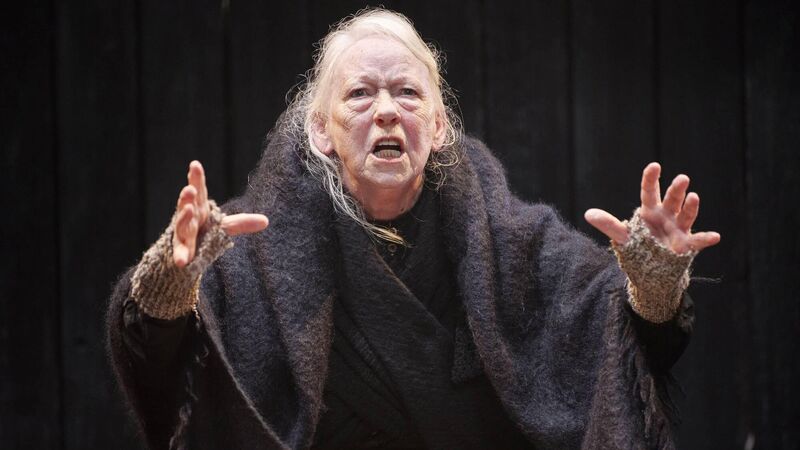Macbeth/Riders to the Sea review: Druid triumph with 50th anniversary double bill

Marie Mullen in Druid's production of Riders to the Sea. Picture: Ros Kavanagh
Try from €1.50 / week
SUBSCRIBE
Marie Mullen in Druid's production of Riders to the Sea. Picture: Ros Kavanagh
Macbeth/Riders to the Sea, Mick Lally Theatre, Galway International Arts Festival
★★★★★
Already a subscriber? Sign in
You have reached your article limit.
Annual €130 €80
Best value
Monthly €12€6 / month
Introductory offers for new customers. Annual billed once for first year. Renews at €130. Monthly initial discount (first 3 months) billed monthly, then €12 a month. Ts&Cs apply.
Newsletter
Music, film art, culture, books and more from Munster and beyond.......curated weekly by the Irish Examiner Arts Editor.
Newsletter
Music, film art, culture, books and more from Munster and beyond.......curated weekly by the Irish Examiner Arts Editor.
© Examiner Echo Group Limited